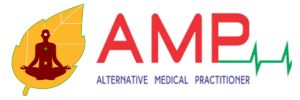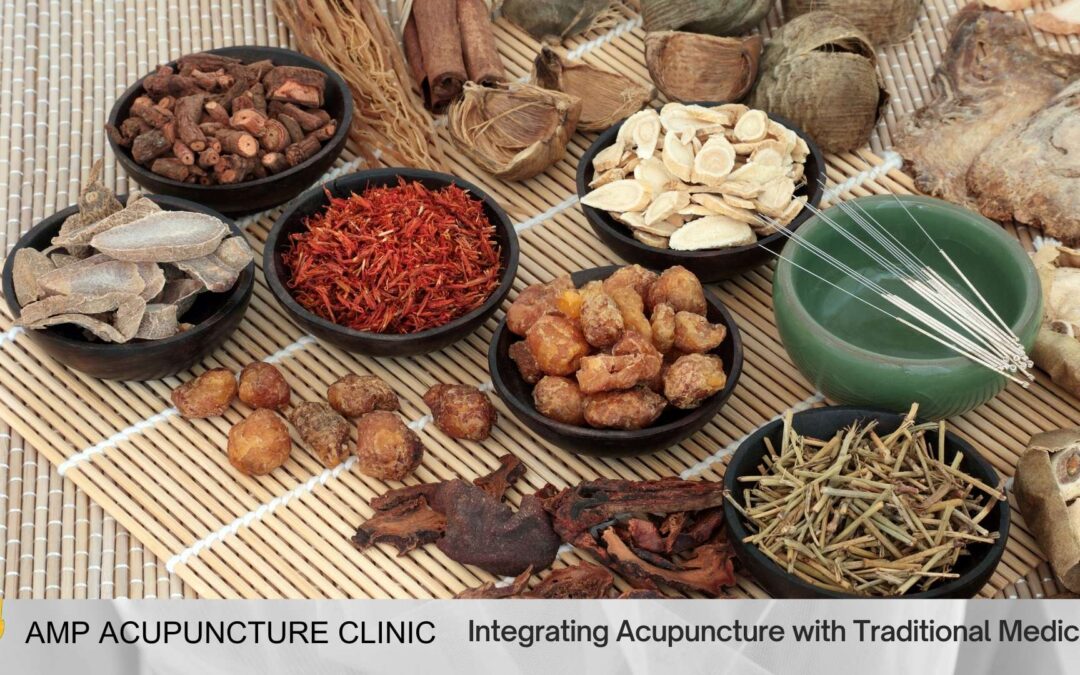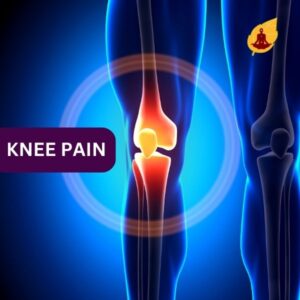Integrating acupuncture with traditional medicine offers a balanced approach to healthcare that blends the wisdom of ancient practices with modern medical advancements. Acupuncture, a core part of traditional Chinese medicine (TCM), has been used for centuries to treat various ailments by restoring the body’s natural energy flow. Today, many people are discovering that combining acupuncture with conventional treatments can provide more comprehensive care, helping to manage pain, reduce stress, and promote overall wellness. In this post, we’ll explore how this integration works and why it might be the perfect way to enhance your health.
Integrating Acupuncture with Traditional Medicine
Integrating acupuncture with traditional medicine is becoming more popular as people seek more holistic ways to manage their health. Acupuncture, a key part of traditional Chinese medicine (TCM) for thousands of years, is now being combined with modern medical treatments to offer a more comprehensive approach to healthcare. By blending both natural and conventional therapies, patients can benefit from the best of both worlds. In this post, we’ll explore how integrating acupuncture with traditional medicine can help treat various conditions and what you can expect from this combined approach. Let’s dive in!
1. Understanding Acupuncture and Traditional Medicine: Integrating Acupuncture with Traditional Medicine
What is Acupuncture?
Acupuncture is an ancient practice that involves gently inserting very thin needles into specific points on the body. These points are located along pathways called meridians, which are believed to guide the flow of energy, or “Qi” (pronounced “chee”), throughout the body. According to traditional Chinese medicine (TCM), when the flow of Qi becomes blocked or unbalanced, it can lead to problems like pain, illness, or even emotional stress. Acupuncture helps to restore the balance of this energy, encouraging the body’s natural ability to heal itself.
What is Traditional Medicine?
Traditional, or Western, medicine is the type of healthcare we typically think of when visiting a doctor or hospital. It’s based on scientific research and involves techniques like lab tests, physical exams, X-rays, and MRI scans to diagnose health problems. Treatment in traditional medicine often includes medications, surgeries, and other medical interventions aimed at managing or curing diseases by directly targeting symptoms or the root causes.
How Does Integrating Acupuncture with Traditional Medicine Help?
When acupuncture is combined with traditional medicine, it offers a more holistic and complete approach to treating health issues. Acupuncture focuses on restoring balance and addressing the underlying causes of discomfort or illness, while traditional medicine takes care of specific symptoms through proven medical interventions. Together, these methods not only target the immediate problem but also support long-term well-being, leading to more comprehensive and lasting relief for patients. This integration can be especially helpful in managing chronic conditions, pain, or stress, where both physical and energetic healing can work together for better results.
2. The Benefits of Integrating Acupuncture with Traditional Medicine
1. Enhanced Pain Management
Acupuncture is highly regarded for its ability to relieve chronic pain, such as back pain, arthritis, and migraines. Traditional medicine often addresses these conditions with pain medications, which can come with side effects like drowsiness, nausea, or even addiction in some cases. By combining acupuncture with traditional treatments, patients can experience natural pain relief, which may allow them to reduce their reliance on medications. Acupuncture stimulates the release of endorphins—your body’s natural painkillers—helping you feel better without the potential drawbacks of prescription drugs. This integrative approach gives patients more control over their pain management with fewer risks.
2. Improved Mental Health
Conditions like anxiety, depression, and chronic stress are commonly treated with medications and therapy in traditional medicine. However, acupuncture offers a natural complement to these methods by calming the nervous system and helping to regulate hormones such as serotonin and dopamine, which influence mood. Acupuncture has been shown to reduce feelings of anxiety and stress, promoting relaxation and a greater sense of emotional balance. By integrating acupuncture into mental health treatment, patients can experience enhanced emotional well-being alongside their conventional care, often helping to reduce the dosage or frequency of medication.
3. Better Recovery from Injuries
In the aftermath of surgery or injury, traditional treatments such as physical therapy, medications, or even invasive procedures are often prescribed to help with recovery. However, healing can sometimes be slow or incomplete. Acupuncture can speed up this recovery process by improving blood circulation, reducing swelling and inflammation, and promoting tissue repair. Many patients find that acupuncture helps them heal more quickly, especially when recovering from musculoskeletal injuries. By integrating acupuncture into their treatment plan, patients may notice a quicker return to normal activities with less discomfort during the recovery process.
4. Stronger Immune System
A strong immune system is vital for staying healthy and fighting off infections. Traditional medicine boosts immunity through vaccinations, supplements, and medications. Acupuncture, on the other hand, supports the immune system by balancing the body’s energy and promoting overall health. It stimulates the body’s natural defense mechanisms, making you more resilient to illness. When used alongside traditional methods, acupuncture can enhance your body’s ability to ward off common colds, flu, and other infections, helping you stay healthier throughout the year. Combining both approaches creates a well-rounded defense strategy for your immune system.
3. Conditions That Benefit from Integrating Acupuncture with Traditional Medicine
1. Chronic Pain Conditions
Managing chronic pain conditions like fibromyalgia, osteoarthritis, and sciatica can be challenging, especially when relying solely on medications. Painkillers often come with side effects and don’t always provide complete relief. By integrating acupuncture into the treatment plan, patients can experience a reduction in inflammation, improved mobility, and a significant decrease in pain levels. Acupuncture stimulates specific points on the body to promote natural healing, which helps in managing the root causes of chronic pain. This combined approach allows for a more effective and holistic pain management strategy, reducing the need for high doses of medication over time.
2. Cancer Care
Cancer treatments like chemotherapy and radiation can cause side effects such as fatigue, nausea, and pain. While traditional medicine focuses on attacking cancer cells, it often leaves patients struggling with these debilitating side effects. Acupuncture can offer relief by helping to ease nausea, reduce pain, and combat fatigue, improving the overall quality of life for cancer patients. Many people find that acupuncture helps them manage the physical and emotional toll of cancer treatments, allowing them to feel more energized and comfortable as they undergo necessary medical care. Integrating acupuncture into cancer treatment provides a more balanced approach that supports the patient as a whole.
3. Digestive Disorders
Digestive issues like irritable bowel syndrome (IBS), acid reflux, and gastritis are often managed with medications that regulate digestion and reduce discomfort. However, acupuncture offers a complementary approach by addressing the underlying imbalances in the digestive system. It can help reduce inflammation, improve digestion, and relieve discomfort naturally, without the side effects that medications may bring. By promoting better overall function of the digestive system, acupuncture supports the body’s ability to heal itself, providing long-term relief alongside conventional treatments.
4. Respiratory Conditions
Conditions like asthma, allergies, and chronic bronchitis are typically treated with inhalers, medications, and sometimes lifestyle adjustments. These treatments are crucial for managing symptoms and preventing flare-ups. However, acupuncture can enhance the effectiveness of these treatments by helping to open up airways, reduce inflammation in the respiratory system, and improve lung function. Many patients find that acupuncture provides additional relief, making it easier to breathe and reducing the frequency and severity of respiratory issues. Integrating acupuncture into respiratory care can offer a more comprehensive solution for managing chronic respiratory conditions.
4. How to Integrate Acupuncture with Traditional Medicine
1. Consult with Both Healthcare Providers
The first step in combining acupuncture with traditional medicine is making sure both your doctor and acupuncturist are involved in your care. It’s important to discuss your current treatments with both professionals so they can create a well-rounded plan that brings together the benefits of both approaches. For example, if you’re already taking medication for a condition, your acupuncturist needs to know, and your doctor should be aware of your acupuncture sessions. This way, both treatments can work in harmony, ensuring you’re getting the best care without any conflicts between therapies.
2. Start with a Holistic Assessment
A thorough assessment is essential when you begin integrating acupuncture with traditional medicine. Your acupuncturist will take time to understand your overall health, including your medical history, lifestyle habits, and any specific symptoms you’re experiencing. This helps them design acupuncture sessions that are tailored to your unique needs. On the other hand, your doctor will use diagnostic tests like blood work or imaging to pinpoint the root of your condition and determine the best conventional treatments. Together, this dual approach ensures that you’re receiving personalized care that addresses both the symptoms and the underlying causes of your health issues.
3. Monitor Progress Regularly
It’s crucial to track your progress throughout the treatment process. Regular follow-up appointments with both your doctor and acupuncturist allow them to assess how well the integrated treatment plan is working. They can make adjustments as needed to improve the effectiveness of both acupuncture and traditional medicine. For instance, if you’re experiencing faster healing with acupuncture, your doctor may adjust your medication dosage, or your acupuncturist might modify the points used during your sessions to better target new or lingering issues. This ongoing communication ensures that you get the best results from both types of care.
4. Use Acupuncture to Complement, Not Replace, Traditional Medicine
While acupuncture is an effective treatment for many conditions, it’s essential to remember that it should complement, not replace, traditional medicine. For serious health issues like heart disease, cancer, or major injuries, conventional treatments such as medication, surgery, or physical therapy are necessary and proven. Acupuncture should be viewed as a supportive therapy that enhances the benefits of these traditional treatments. For example, acupuncture can help reduce the side effects of medications or speed up recovery after surgery. By using both together, you can enjoy a more balanced, comprehensive approach to healing.
5. Why Choose AMP Acupuncture Clinic for Integrating Acupuncture with Traditional Medicine?
1. Experienced Practitioners
At AMP Acupuncture Clinic, our team brings years of experience in both acupuncture and collaboration with traditional healthcare providers. We understand the importance of working together with your doctors to make sure acupuncture fits smoothly into your overall treatment plan. Our practitioners are skilled in using acupuncture to complement conventional medicine, ensuring that you get the best possible outcomes for your health.
2. Personalized Treatment Plans
We recognize that no two patients are the same. That’s why we take the time to understand your individual health needs and create a treatment plan that combines the benefits of acupuncture with traditional medical care. Whether you’re dealing with chronic pain, stress, or recovery from an injury, we tailor our approach to target your specific challenges, making sure you get the most effective and well-rounded care.
3. Safe and Comfortable Environment
Your safety and comfort are our top priorities at AMP Acupuncture Clinic. We provide a clean, sterile environment where you can relax during your acupuncture treatments. We also stay in close contact with your healthcare providers to ensure that the acupuncture sessions align with any medications or therapies you’re receiving. This holistic approach means you can feel confident that your treatment is both safe and supportive of your overall health goals.
4. Positive Results
Many of our patients have seen significant improvements by integrating acupuncture with traditional medicine. From reducing chronic pain and speeding up post-surgery recovery to improving mental well-being and managing stress, our holistic treatments have helped countless individuals achieve better health outcomes. By choosing AMP Acupuncture Clinic, you’re choosing a proven path to healing that embraces both modern and ancient techniques for your well-being.
1. What is the difference between traditional medicine and acupuncture?
Traditional medicine uses pills, surgery, and other medical procedures. Acupuncture uses thin needles to stimulate the body's healing.
2. Can acupuncture be used with traditional medicine?
Yes, acupuncture can be used alongside traditional medicine to treat various health conditions.
3. What are the benefits of combining acupuncture with traditional medicine?
Combining acupuncture with traditional medicine can: Reduce pain and discomfort Improve quality of life Reduce reliance on medications Provide a holistic approach to healthcare
4. How do I find a qualified acupuncturist?
Ask your doctor for recommendations or look for licensed or certified acupuncturists.
Ready to experience the benefits of integrating acupuncture with traditional medicine? Contact AMP Acupuncture Clinic today to schedule your initial consultation. Our experienced acupuncturists can work with your healthcare provider to develop a personalized treatment plan that meets your specific needs.
Read More About :Six Ways Yoga Can Help You







